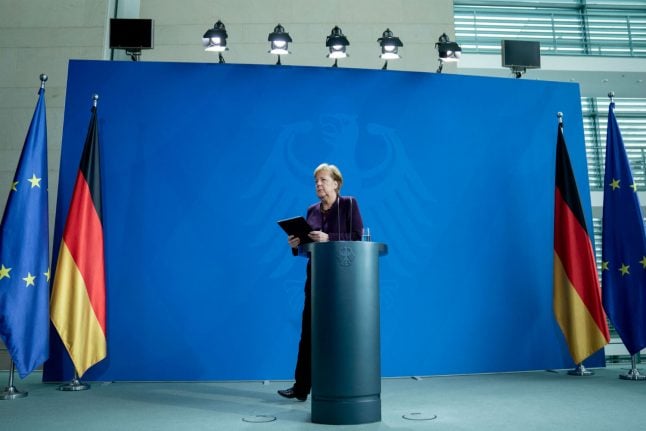Merkel's initial heir apparent, Annegret Kramp-Karrenbauer, resigned as party leader this month over a scandal involving apparent cooperation with the far right.
The surprise move threw open the race to succeed Merkel, who has been in power for more than 14 years and plans to bow out at the next general elections in 2021.
The Christian Democratic Union's extraordinary party congress in spring should anoint a new chairman, who would then be almost sure to become the party's candidate for chancellor.
Kramp-Karrenbauer — widely known as “AKK” — held talks with party grandees on Monday with the CDU still in crisis mode.
On Sunday, the party suffered its second-worst result ever in a regional election, coming third in Hamburg with just 11.5 percent of the vote.
It is also engulfed in an internal debate as to how it should position itself against the extremes of right and left that have reshaped the nation's political landscape.
Far-right crisis
AKK launched the race to succeed Merkel after barely a year as head of the party, by announcing her resignation on February 10th.
Regional lawmakers in the eastern state of Thuringia had defied an edict from Berlin not to ally with the extremes, by voting with the far-right Alternative for Germany (AfD).
It was the latest sign that the defence minister had failed to stamp her authority on the CDU and become a credible candidate to succeed Merkel.
AKK initially planned a quick departure, hoping to elevate a successor who would also lead the party into the 2021 election.
But her own example shows how difficult it is for a party chief to make their mark while the phenomenally popular Merkel remains in office.
“How can Angela Merkel be got rid of” to clear the way, top-selling daily Bild asked.
In the starting blocks are two politicians who promise to break with her centrist course and lead the CDU rightwards, to win back voters from AfD.
READ ALSO: From 'avenger' to 'anti-Merkel': Who could be Germany's next chancellor?
One, Friedrich Merz, is a former Merkel rival who recently described her fourth government as “abysmal”, while young Health Minister Jens Spahn is a rising party star.
Facing them are two more moderate candidates: North Rhine-Westphalia state premier Armin Laschet and Norbert Roettgen, a former environment minister who Merkel had dismissed.
'Self-destruction'
The choice of leader will set the tone for the future of a party that has dominated German politics since the post-World War II federal republic was founded in 1949.
Polls highlight the urgent need for action, as only 27 percent still say they would back the CDU, ahead of 23 percent for the Greens and 14 percent for the far right.
Beyond the high-profile personalities, the conservatives also need to clarify what they stand for in an increasingly splintered political landscape that hinders stable majorities, be it in Berlin or the 16 state parliaments.
READ ALSO: From 'avenger' to 'anti-Merkel': Who could be Germany's next chancellor?
Top of the list is whether the CDU will stick to its rigid policy of refusing to cooperate with either the far right or the far left, borders growing increasingly difficult to maintain as their share of the vote
increases.
Thuringia is a textbook case, as last year's regional elections produced no clear governing majority following a surge by the AfD.
CDU state lawmakers voted with the far right, breaching a historic political taboo, to install a liberal state premier.
But after a nationwide outcry, the regional CDU retreated — only to be publicly rebuked by Berlin chiefs for its plan to “tolerate” a minority government led by radical-left successors of the one-party state in communist East Germany.
Weekly Der Spiegel labelled the CDU's zig-zagging “self-destruction” by “a party without direction or a strategic centre.”
The conservatives are “a party out of control,” Bild said.




 Please whitelist us to continue reading.
Please whitelist us to continue reading.
Member comments